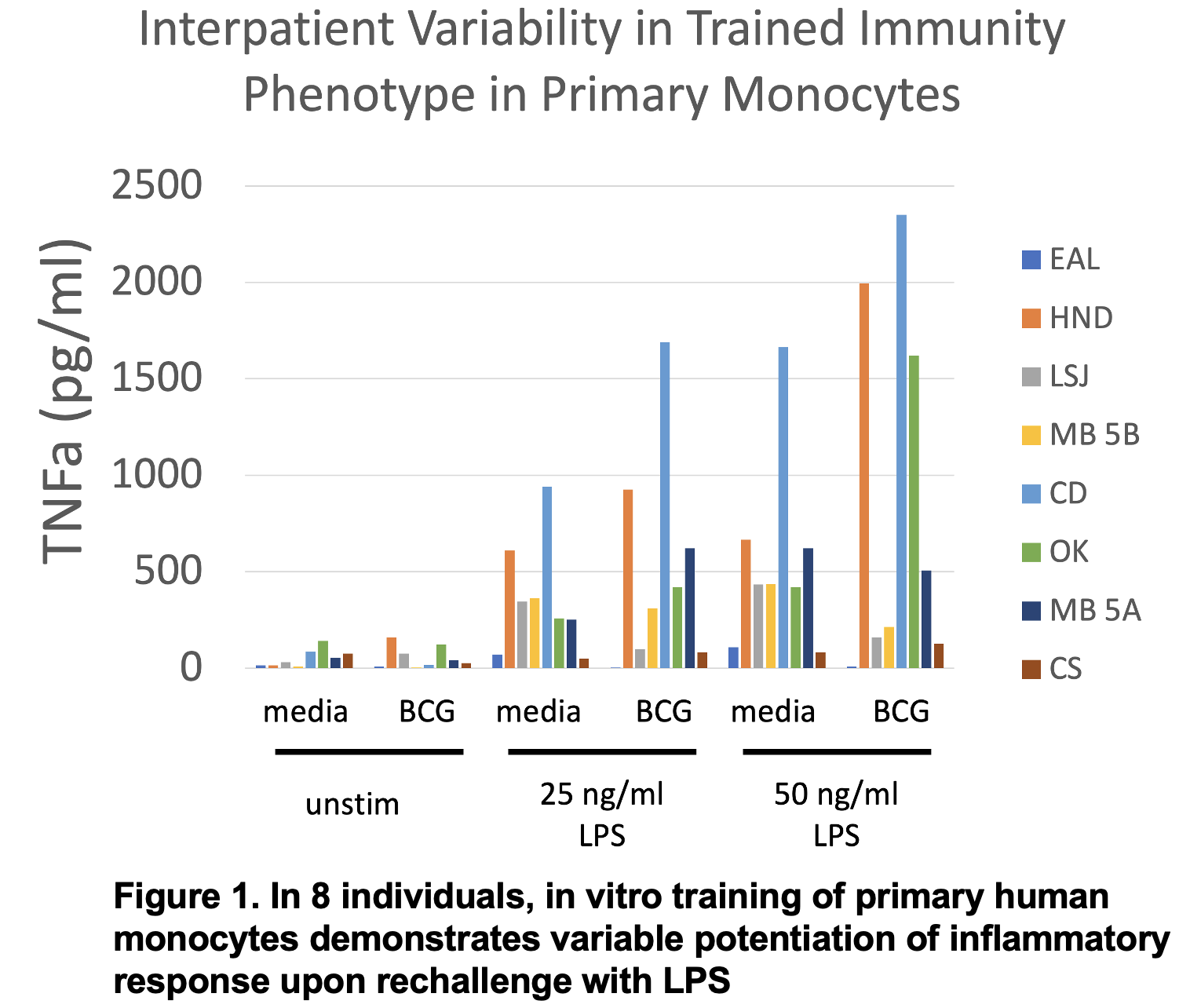Back
Poster, Podium & Video Sessions
Moderated Poster
MP59: Bladder Cancer: Non-Invasive III
MP59-10: Evaluating Ex Vivo Innate Immune Training as a Predictive Measure of Responsiveness to BCG Immunotherapy in Patients with Non-Muscle Invasive Bladder Cancer
Monday, May 16, 2022
1:00 PM – 2:15 PM
Location: Room 225
Song Jiang*, Gil Redelman-Sidi, Eugene J. Pietzak, Bernard H. Bochner, Michael Glickman, New York, NY
.jpg)
Song Jiang, MD, PHD
Urologic Oncology Fellow
Memorial Sloan Kettering Cancer Center
Poster Presenter(s)
Introduction: Intravesical instillation of the live attenuated mycobacterium Bacillus Calmette-Guerin (BCG) remains the most effective adjuvant therapy for non-muscle invasive bladder cancer. An increasing body of evidence suggests that the innate immune system has characteristics that involve a heterologous memory of past insults through a process involving epigenetic reprogramming, termed trained immunity. We seek to investigate the potential for innate immune training as a pre-treatment predictor of BCG-response.
Methods: A prospective biospecimen collection was performed on venous blood from non-muscle invasive bladder cancer patients prior to receiving intravesical BCG therapy. To investigate the role of trained immunity in primary monocytes, cells were isolated from peripheral blood mononuclear cells (PBMC) by plate adhesion. In vitro training was performed via stimulation with 10:1 MOI BCG. Cells were then washed in media and allowed to rest 6 days. Subsequently, cells were stimulated with lipopolysaccharide (a TLR4 agonist). Cell free supernatant was measured for TNF-alpha production by enzyme-linked immunosorbent assay.
Results: In vitro training of primary monocytes induced an increase in proinflammatory cytokine production upon re-stimulation. This phenotype was dose dependent on stimulation with LPS and confined to the monocyte population. In our in vitro training experiments, there was demonstrable interpatient variability seen pre-BCG exposure in a cohort of NMIBC patients. These results will be correlated with future long term BCG response in this prospective cohort.
Conclusions: We have developed a reliable assay to measure ex vivo innate immune training potential in primary monocytes collected from patient samples. These findings will be correlated with prospective clinical data on BCG responsiveness and recurrence free survival. Such insight will have potential clinical impact on the development of biomarkers and clinical assays that could predict immune responsiveness to BCG a priori, as well as identify possible immunological adjuvants that could enhance the effect of intravesical BCG.
Source of Funding: NCI Specialized Programs of Research Excellence (SPORE) in Bladder Cancer P50 CA221745

Methods: A prospective biospecimen collection was performed on venous blood from non-muscle invasive bladder cancer patients prior to receiving intravesical BCG therapy. To investigate the role of trained immunity in primary monocytes, cells were isolated from peripheral blood mononuclear cells (PBMC) by plate adhesion. In vitro training was performed via stimulation with 10:1 MOI BCG. Cells were then washed in media and allowed to rest 6 days. Subsequently, cells were stimulated with lipopolysaccharide (a TLR4 agonist). Cell free supernatant was measured for TNF-alpha production by enzyme-linked immunosorbent assay.
Results: In vitro training of primary monocytes induced an increase in proinflammatory cytokine production upon re-stimulation. This phenotype was dose dependent on stimulation with LPS and confined to the monocyte population. In our in vitro training experiments, there was demonstrable interpatient variability seen pre-BCG exposure in a cohort of NMIBC patients. These results will be correlated with future long term BCG response in this prospective cohort.
Conclusions: We have developed a reliable assay to measure ex vivo innate immune training potential in primary monocytes collected from patient samples. These findings will be correlated with prospective clinical data on BCG responsiveness and recurrence free survival. Such insight will have potential clinical impact on the development of biomarkers and clinical assays that could predict immune responsiveness to BCG a priori, as well as identify possible immunological adjuvants that could enhance the effect of intravesical BCG.
Source of Funding: NCI Specialized Programs of Research Excellence (SPORE) in Bladder Cancer P50 CA221745


.jpg)
.jpg)